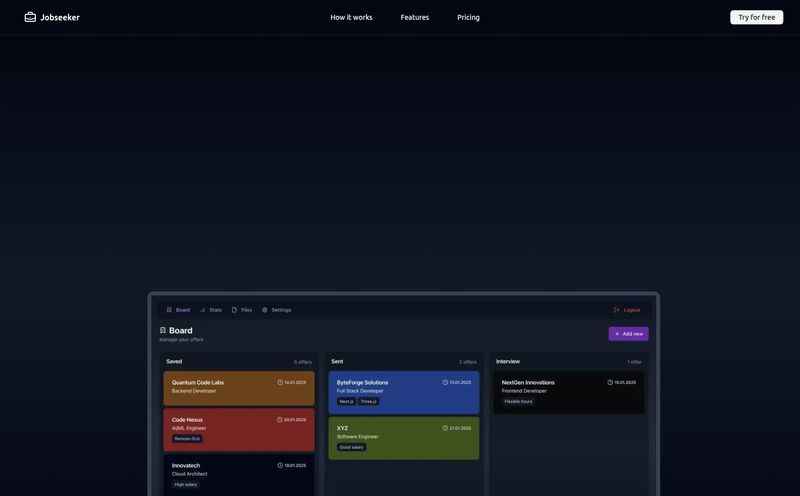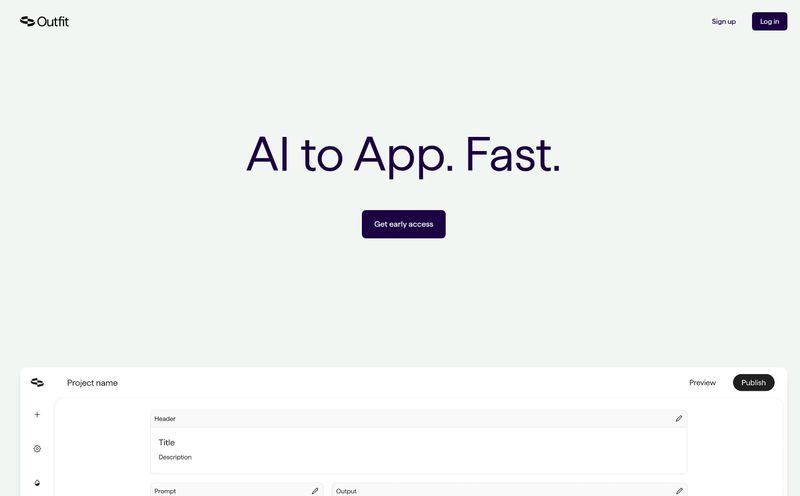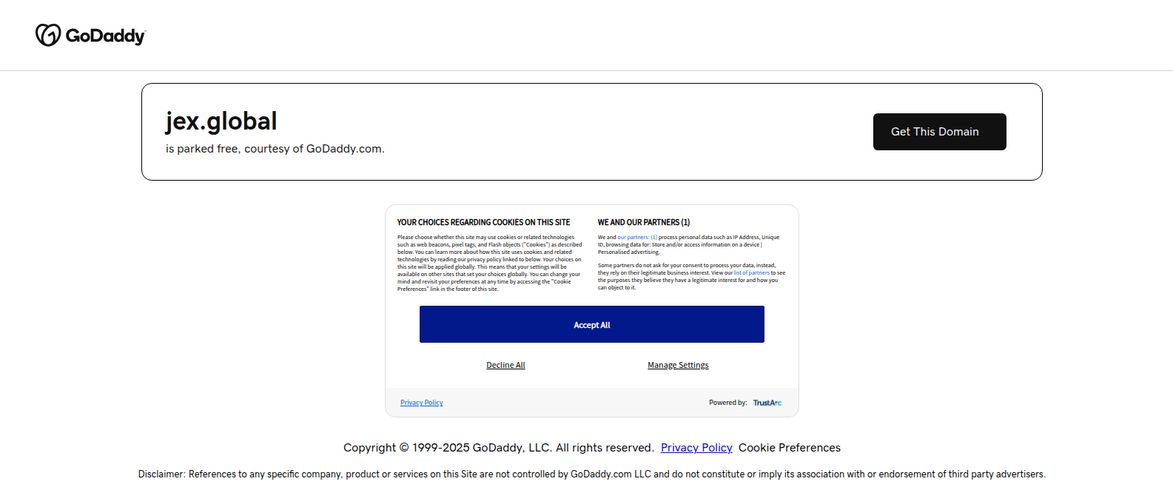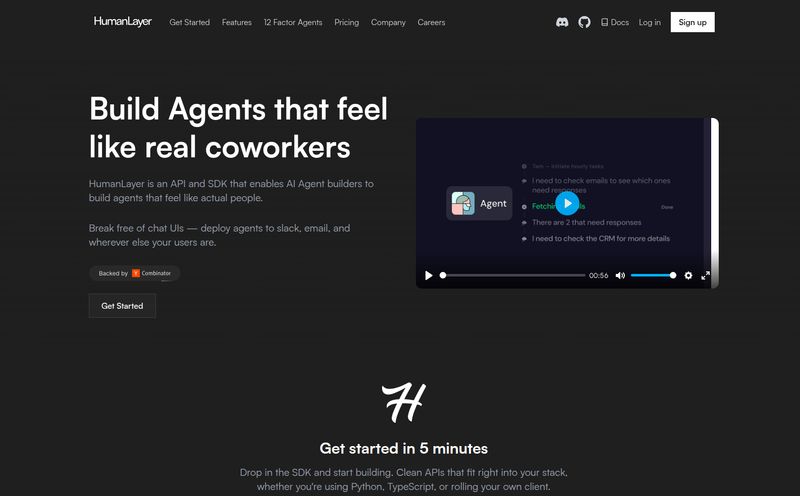We've all been there. You've spent weeks, maybe months, polishing your resume until it shines. You've used the right action verbs, you've quantified your achievements, and you've formatted it into a beautiful, single-page PDF that an AI scanner will probably reject in six seconds flat. The whole song and dance feels… a bit outdated, doesn't it? Especially in tech.
I’ve been in the SEO and digital marketing game for years, and I've seen hiring trends come and go. But the one trend that’s sticking around, the one that actually makes sense, is the slow and steady death of the paper-qualification-first mindset. Companies are finally waking up to the fact that a fancy degree doesn't always equal a fantastic developer. What matters is what you can build.
And that’s where I stumbled upon a platform called Skills Over Paper. The name alone had me hooked. It’s not just a catchy phrase; it's a philosophy that's been bubbling under the surface of the dev world for a decade. I had to see what they were cooking up.
So, What Exactly is Skills Over Paper?
In short, it’s a platform that’s part intelligent vetting pipeline, part career RPG for developers. Instead of just listing your experience, you’re invited to prove it. The entire system is built around your projects, your GitHub commits, and the actual, tangible skills you possess. Think of it less as a resume builder and more as a living, breathing portfolio that gets you noticed by companies that care about code, not credentials.
It screens developers on the important stuff: your communication style, your actual coding chops, and your social proof (hello, active GitHub profile!). Then it does something really clever—it analyzes your projects and the courses you’ve taken to map out your highly specific skillsets. No more just listing “JavaScript” on your resume; this thing can see that you’ve specifically worked with React Hooks in a server-side rendering context. That's a huge difference.
This isn't just about making you look good, its a fundamental shift in how talent is matched with opportunity.
Level Up Your Career with Gamified Learning Tracks
Okay, here’s the part that really got my attention. The “gamified learning” aspect. I know, I know—'gamification' is a buzzword that can make you roll your eyes so hard you see your own brain. But stick with me, because their implementation is pretty slick.
They have these things called “Learning Tracks.” Imagine a skill tree from a video game like Diablo or Path of Exile. You want to become a specialist in, say, Generative AI or Embedded Systems? You don’t just watch a 40-hour video course. You follow a track that gives you project ideas, points you to resources, and has you complete specific tasks to unlock skills.
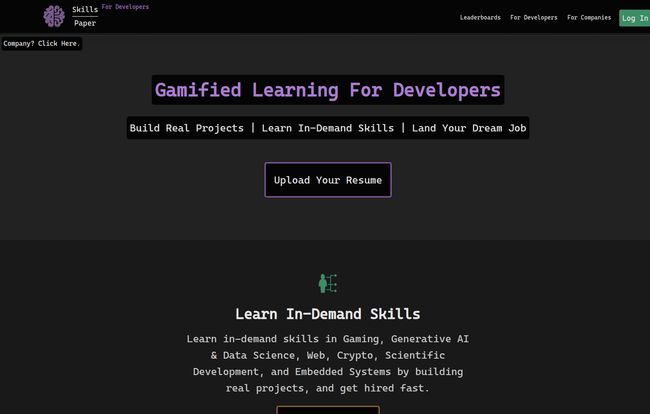
Visit Skills Over Paper
For example, a track on computer graphics might require you to demonstrate skills in “2D Reflection” and “3D Rotation” to complete it. It's hands-on. It's structured. And honestly, it sounds way more engaging than the passive learning we've all grown accustomed to. It turns professional development from a chore into a quest. And who doesn't love a good quest?
It's All About The Projects, Baby
The core of the Skills Over Paper ethos is proof of work. It’s right there in the name. Your profile is built upon the projects you add. You can upload your existing resume to get started, and the platform intelligently pulls out your experience, projects, and education to build a foundation. But the real magic happens when you start linking to real work.
I saw one example profile for a “Freelance Lead Developer” where their experience on an “Alphabetical Task Management System” was detailed, right down to the programming languages used. This is what recruiters want to see! They don't want to read a bullet point that says “Improved system efficiency.” They want to see the project where you did it, and maybe even peek at the code on GitHub.
This approach is a double-edged sword, of course. It’s fantastic for developers who have been consistently building, whether for work or as a hobby. If your GitHub is a garden of green squares, you'll feel right at home. But if you’re coming in cold, with no projects to show… well, this platform is a clear sign that it’s time to start building.
Your New Public Profile is Your Digital Handshake
Once you’ve built out your profile, it becomes a public, shareable resume. And it’s so much more powerful than a LinkedIn page. It’s got social proof baked right in, with links to your GitHub, website, and social media. I even saw a “Cash Verified” badge, which I assume means they verify your past paid work, adding another layer of trust.
This public profile becomes your single source of truth. When a recruiter from Google, IBM, or a hot startup (all logos they feature, by the way) is looking for someone with your exact skillset, they can find you. Your profile doesn't just say you know C#; it shows the project where you used it, the learning track you completed to master it, and the social proof that you are who you say you are. That’s a powerful combination.
Let's Talk Brass Tacks: Who Is This For (And Who Is It NOT For)?
No tool is perfect for everyone. As much as I love the concept, Skills Over Paper has a definite target audience.
This is probably for you if:
- You're a self-taught developer or bootcamp grad with a strong portfolio that speaks louder than your educational background.
- You're an experienced dev who wants to showcase your skills for remote work without the resume-fluffing nonsense.
- You believe in the “show, don’t tell” philosophy and have the projects to back it up.
- You enjoy structured, project-based learning to acquire new, in-demand skills like Web3 or Generative AI.
This might NOT be for you if:
- You're an absolute beginner with zero projects under your belt. You’ll need to build a few things first.
- You're unwilling to actively participate in building out a profile and completing projects. This isn't a passive platform.
- You work in a field that is still, for better or worse, heavily reliant on traditional certifications for compliance reasons.
And The Price Tag?
Here’s the million-dollar question. As of this writing, I couldn't find any public pricing information on their site. This often means the platform is free for developers (the “product”) and the companies and recruiters are the ones who pay to access the talent pool. This is a common and, in my opinion, fair model. But that's just my speculation for now.
My Final Thoughts as a Tech Watcher
I've seen dozens of platforms try to “disrupt” hiring. Most fail. But Skills Over Paper feels different. It’s not just trying to be a better job board; it's trying to change the fundamental currency of the hiring market from credentials to capabilities. It’s leaning hard into a trend that the best developers and the smartest companies already know to be true: what you can do is infinitely more important than what a piece of paper says you can do.
It’s an ambitious goal, and its success will depend on building a strong community of both developers and recruiters. But from where I'm sitting, it's a step in a very, very right direction.
Frequently Asked Questions about Skills Over Paper
- How does Skills Over Paper verify skills?
- It seems to be a mix of methods. The platform analyzes the code and descriptions of the projects you submit, tracks your progress through their skill-based Learning Tracks, and incorporates social proof from linked accounts like GitHub.
- Is this platform good for a beginner developer?
- It's best for developers who have at least a few projects to show. While the learning tracks can help you build new skills, it's primarily a platform to showcase your work, not necessarily a place to write your very first 'Hello, World!'.
- Can I import my existing resume or GitHub profile?
- Yes. The platform has an “Upload Your Resume” feature to get you started quickly by parsing your existing information. Connecting your GitHub is also a central part of building a trusted profile.
- How is this different from just having a great LinkedIn profile?
- Think of it as LinkedIn on steroids, specifically for devs. It goes beyond a simple list of jobs and skills by integrating gamified learning, deep project analysis, and a direct pipeline to companies that are specifically looking for verified, project-based talent.
- What does Skills Over Paper cost to use?
- Currently, there is no public pricing available for the platform. It's possible it's free for developers to build profiles and that companies pay a fee to recruit from the platform, but this is unconfirmed.
Conclusion
The world of tech is moving fast, and the way we hire needs to catch up. Relying on resumes feels like using a flip phone in an iPhone world. Platforms like Skills Over Paper are a welcome change, championing a future where your GitHub contributions matter more than your GPA. If you’re a developer who believes your work should speak for itself, this might just be the megaphone you've been looking for.
